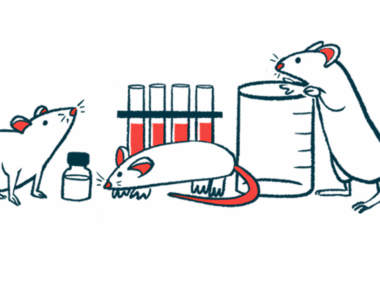AskBio’s gene therapy AB-1005 granted FDA’s RMAT status
REGENERATE-PD trial enrolling 87 adults with moderate Parkinson's
Written by |

AB-1005, AskBio’s investigational gene therapy for Parkinson’s disease, has been granted regenerative medicine advanced therapy (RMAT) designation by the U.S. Food and Drug Administration (FDA).
RMAT designation is intended to speed the development and review of therapies that have shown potential to treat serious or life-threatening conditions. Benefits include early and frequent interactions with the FDA, which guides therapeutic development and eligibility for accelerated review.
Regenerative medicine refers to treatments based on tissues or cells, products from human tissue or cells, or any combination of these therapies or products.
“The FDA’s decision to grant RMAT designation to AB-1005 is exciting news for people living with Parkinson’s disease and their loved ones,” Gustavo Pesquin, CEO of AskBio, said in a company press release. “This milestone could potentially expedite the development of our important investigational gene therapy program, and it highlights our promising data and the potential of AB-1005 for patients and the medical community. We look forward to working closely with the FDA to accelerate our program.”
First REGENERATE-PD participants assigned to treatment groups
Meanwhile, the first participants in the REGENERATE-PD Phase 2 trial (NCT06285643) have been randomly assigned to different treatment groups in the U.S. The trial is testing the gene therapy in up to 87 adults with moderate Parkinson’s, ages 45 to 75. Enrollment is ongoing, with additional sites in the U.S., the U.K., Germany, and Poland expected to open soon. The trial’s primary goal is to assess changes in motor fluctuations over 18 months based on patient diaries.
Parkinson’s is caused by the loss of nerve cells in the brain that produce the signaling molecule dopamine, called dopaminergic neurons. Because dopamine is essential for controlling voluntary body movements, a lack of these neurons disrupts dopamine signaling, ultimately giving rise to the disease’s motor symptoms.
AB-1005 is designed to provide the gene that codes for glial cell line-derived neurotrophic factor (GDNF), a signaling protein essential for the growth, survival, and function of dopaminergic neurons. Delivered by an adeno-associated virus 2 (AAV2), the therapy, formerly known as AAV2-GDNF, is administered via a neurosurgical injection, guided by MRI, to both sides of the putamen, which is a brain region involved in motor control.
The delivered gene will enable brain cells to make the GDNF protein, which is expected to help reduce Parkinson’s motor symptoms.
Data from an open-label Phase 1b clinical trial (NCT04167540) supported the FDA’s decision to grant RMAT designation to AB-1005.
After three years, patients with moderate disease showed a trend toward improving or stabilizing motor function, as assessed by the Movement Disorder Society-Unified Parkinson’s Disease Rating Scale (MDS-UPDRS) part 3 and patient diaries. Patients also saw a reduction in their daily dose of levodopa, the standard treatment for Parkinson’s.
AB-1005 generally well tolerated
In those with mild Parkinson’s, the gene therapy stabilized disease progression, with little change in MDS-UPDRS, self-reported diaries, or levodopa use. Overall, AB-1005 was also generally well tolerated, with no serious safety issues related to treatment reported.
“The RMAT designation for AB-1005 underscores the high unmet medical need and the potential of this investigational gene therapy to make a difference for patients with Parkinson’s disease,” said Christian Rommel, PhD, executive vice president and global head of research and development at Bayer AG, which owns AskBio. “This is the latest example of what can be achieved through the joint commitment of AskBio and Bayer to deliver breakthrough innovation for patients.”
Last year, AB-1005 was granted fast-track designation for Parkinson’s by the FDA and innovation passport designation by the regulatory agency in the U.K. These designations are meant to accelerate the development and review process of potential treatments for serious conditions and fill unmet clinical needs.







